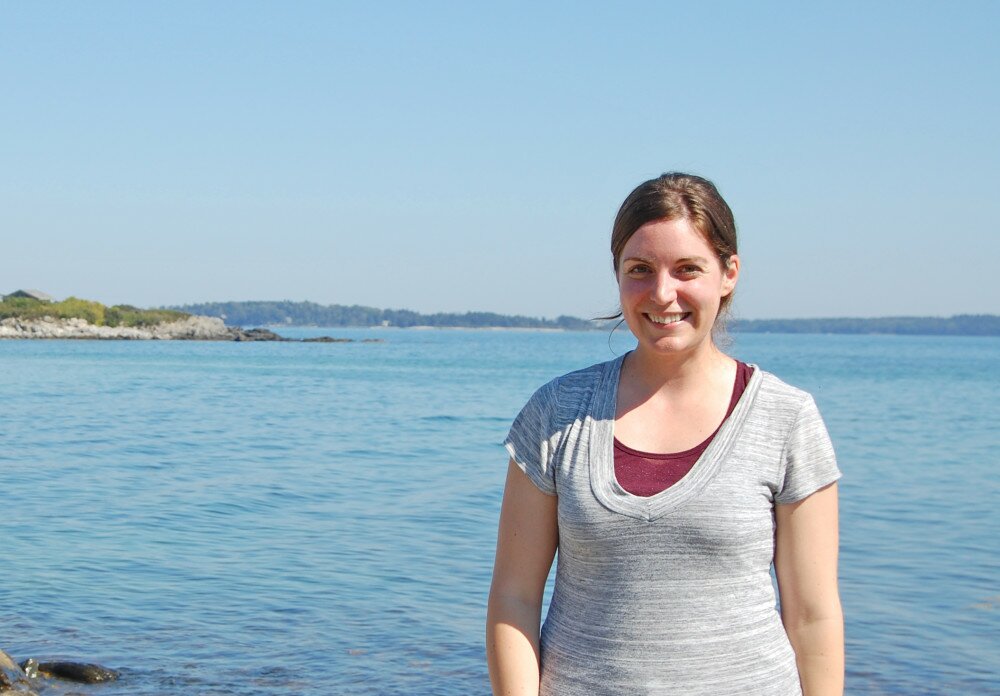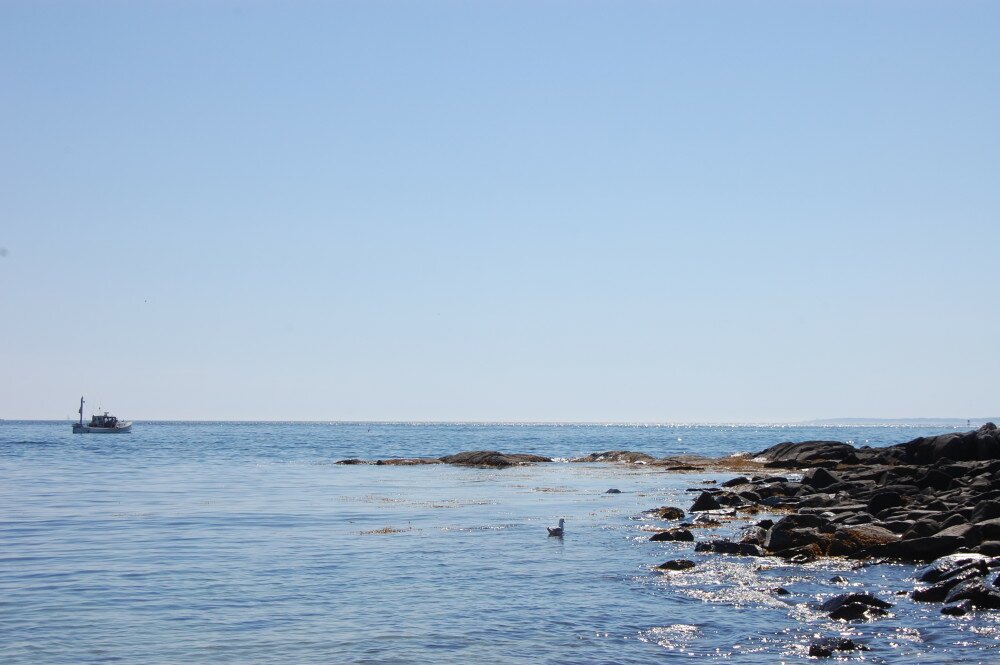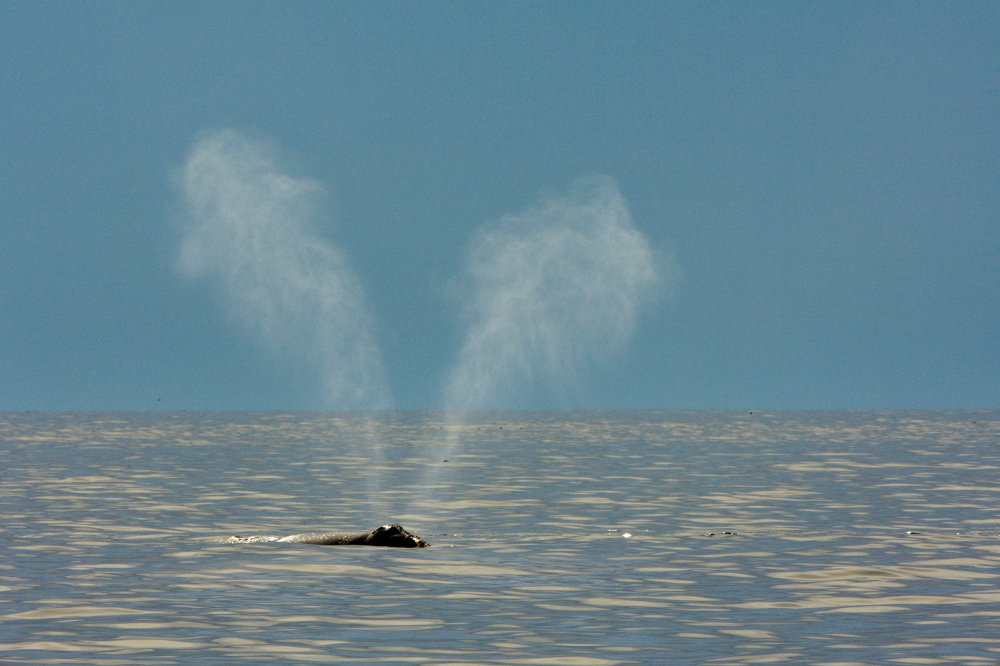Faces of Ocean Planning: Rebecca Clark Uchenna of the Island Institute

“Island life” is pretty unique. For some islanders, day-to-day life means relying on ferries to the mainland to go to work or buy groceries and other household goods. For many others, livelihoods depend on occupations deeply rooted in the sea – from fishing, to owning marine-oriented businesses, to preserving local maritime history and culture.
Each island community is different, but they all share one thing in common: the vitality and productivity of the surrounding ocean is essential to ensuring that their island community continues to thrive. In that regard, their stake in an ocean management plan is very high.
Rebecca Clark Uchenna is part of the Marine Programs Team at the Island Institute, which helps sustain island and coastal communities in Maine. By understanding the complex challenges, needs, and priorities associated with island life, the Island Institute is helping to sustain these communities.
Giving Islanders a Voice in Ocean Planning
Rebecca’s focus is on the regional ocean planning process currently underway in the Northeast. She and the Island Institute have worked tirelessly to lend voice to Maine’s many island communities – which are sizable drivers of the state’s economy – to ensure their needs are heard and incorporated into the region’s first Northeast Regional Ocean Plan (a draft of which will be made public this spring).
Regional ocean planning is a data-driven process that seeks to include all interested parties in order to develop management protocols that take into account the goals of the many different ocean users in the Northeast – with the intended outcome, ultimately, to stop conflict before it starts.
According to Rebecca, a development project like an offshore wind farm or underwater cable may seem innocuous or even harmless to most stakeholders. But because many island and coastal communities rely so heavily upon ocean access for their livelihoods, they must be involved early in the planning process to identify community values and needs. Conversations need to happen between the company, government agencies, and the communities so that all involved understand the impacts and mitigation options of a proposed project.
The cascading consequences of not having these conversations could be devastating to small island communities. If an ill-advised development project affects islanders’ ability to fish in a particular ocean area, that could lead to job losses. Fewer jobs may lead to people moving away to areas with more available work. As families leave, the local school may close because there aren’t enough children left to attend. More departing families could follow and the entire island community could be at risk of disappearing.
This is why, Rebecca says, it’s vitally important that those living in these island and coastal communities are able to voice their concerns while a project is still just a concept. A successful ocean management plan would accurately recognize and depict island life, with processes in place for ensuring continued communication between island communities and outside interests.
Making Sure Fishermen Are Engaged and Heard

A lobster boat in Casco Bay. Finding a balance between fishing and other interests can happen only when all voices are brought to the table.
Rebecca notes that a major part of ensuring coastal communities and islands are able to thrive is taking into account fishermen’s priorities. But, she says, it can be a big sacrifice for a working fisherman to leave their boat and lose a day’s pay to attend a meeting of the Northeast Regional Planning Body – the organization charged with creating the regional ocean plan – and stakeholder meetings. It’s her job to give voice to fishing communities and make sure their concerns are heard through an effort to facilitate robust inclusion of fishermen in the ocean plan.
While the Northeast Regional Planning Body is incorporating language on how they see fishermen’s interests fitting into the plan, these recommendations are largely through the lens of scientists and agency officials – so Rebecca’s role in articulating the fishing community’s point of view is essential to ensuring the recommendations make sense for all involved parties.
Balancing Wide-Ranging Interests
Rebecca’s role (and the Island Institute’s mission in general) in representing these stakeholder groups shows the complexities of what it really means to bring all voices to the table through the ocean planning process. It is difficult work bringing together wide-ranging interests – but it will be worth it when New England has a plan that ensures an efficiently managed, healthy ocean and healthy coastal economies to show for it.
Read more about the Northeast Regional Ocean Plan here.



Recent Comments